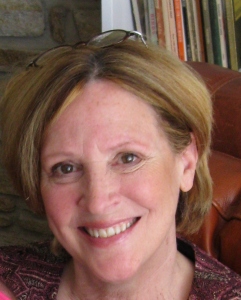The weeks my mother spent in hospice, I discovered—probably too late—that our family was not good at dying. This came to me as I watched the other people on our floor, whose lives now intertwined with ours every day, who were much better at it than we were.
In this hospice (at least before the pandemic) there was a lot of room for creativity as you mourned and waited. I guess the sentiment was: Hey, you’ve got nothing to lose. I could see that the other families had made up their minds to send their loved ones off with panache. We sat in Room 312, frozen, making small talk, pretending it wasn’t happening. If you can be jealous of the way people grieve, I was.
The family in Room 310 brought in one or two of their pets every day. The silence in our room was often punctuated with a lusty bark or the anguished meow of a cat who clearly thought it was at the vet. One morning, I passed by their open door and heard a parrot saying (repeatedly), “I love you, Gram.” And once they got off the elevator with a pot-bellied pig on a leash. We chatted about that—how could you not? His name was Pinky. They seemed surprised that everyone didn’t bring their pig to hospice. How much they didn’t know about us.
On the other side, in Room 314, the family was Italian. Their noisy room was packed with people laughing and crying, and the smell of garlic. Their Nonna had stopped eating a while ago, so they were just waiting. And while they waited, they cooked. They brought in an electric frying pan and made meatballs and sauce. “We want her to remember how her kitchen smelled,” her son told me.
Priests and ministers and rabbis came and went, smiling at us politely as they passed in the hall. The sweet hospice chaplain knocked and came in one day, just to sit and chat with my mother. He may have been too used to patients who were making peace with their God, though. My mother treated him as she might a timeshare salesman, and I could see this didn’t happen to him very often.
Like Nonna and Gran, my mother had plenty of happy memories and a family who loved her, but she wanted nothing to do with the outward grieving that was taking place in other rooms—pets, culinary, or otherwise. So, we sat by her bed and took her lead.
Three days before my mother died, my favorite nurse and I were talking in the coffee room. She said, “I saw your mother do the rope thing last night.” I had no idea what she was talking about, so she pantomimed it for me—raising both arms in the air over her head, looking up, and moving her hands as if she were climbing an imaginary rope. She didn’t think it was a religious thing, she told me, just the person getting ready to go. She said, “Some people do it and some don’t. You wouldn’t believe how many ways there are to die.”
I’d spent my weeks feeling bad we weren’t doing it the right way, and all along, my mother was just doing it her way, as she had done life. She didn’t become a 1950s housewife like every woman on our block because she had a career. She didn’t go to church or play Bridge or cook worth a damn because she had other things to do. She was loved and she loved, but at the end, there were no squawking pets or meatballs simmering. She did the rope thing. There was something waiting on the other side, and she was impatient, as always, to see what it was.
